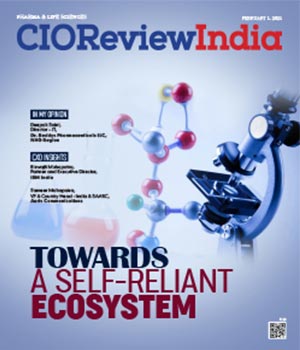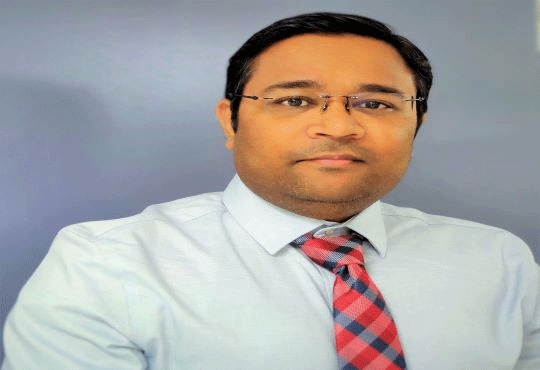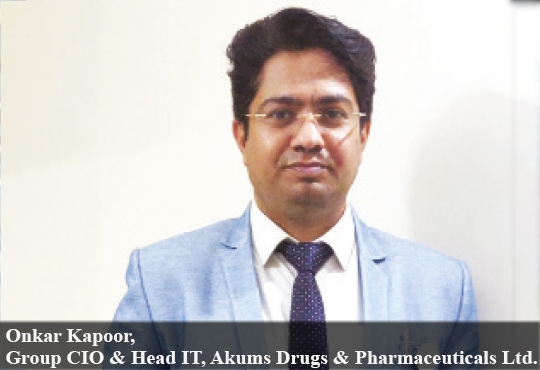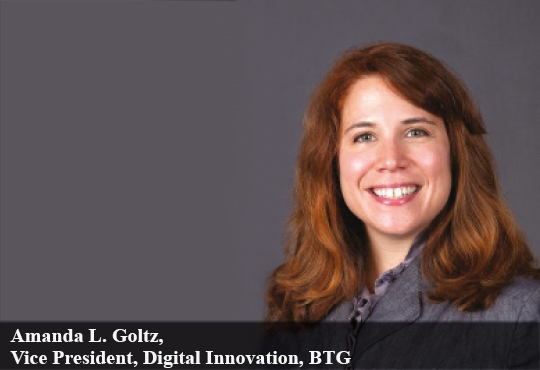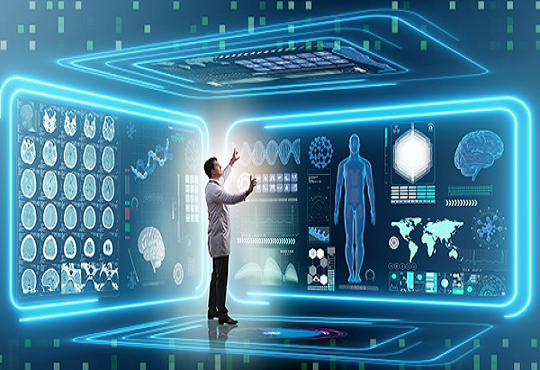
How is Technology Paving Way for Healthcare Industry?
Bipin Joshi, Head-IT, Rockland Hospital | Tuesday, 07 February 2017, 12:42 IST
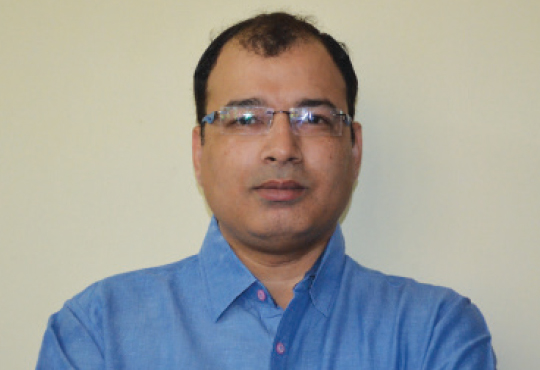 While a range of health and health care entities collect data, the data do not flow among these entities in a cohesive or standardized way. Entities within the health care system face challenges when collecting true data from the source due to lack of education to users about the importance of that particular data field. Explicitly expressing the rationale for the data collection and training staff, organizational leadership, and the public to appreciate the need to use valid collection mechanisms may improve the situation. Wrong collection of data can change the very outcome of the task for which that data is collected. Earlier there used to be challenge when information was coming from disparate sources and it was difficult to make any sense of it but with advent of Big Data or analytics information can be processed and can be presented in very understandable format depending upon the stake holders requirement. Big data analytics has the potential to transform the way healthcare providers use sophisticated technologies to gain insight from their clinical and other data repositories and make informed decisions.
While a range of health and health care entities collect data, the data do not flow among these entities in a cohesive or standardized way. Entities within the health care system face challenges when collecting true data from the source due to lack of education to users about the importance of that particular data field. Explicitly expressing the rationale for the data collection and training staff, organizational leadership, and the public to appreciate the need to use valid collection mechanisms may improve the situation. Wrong collection of data can change the very outcome of the task for which that data is collected. Earlier there used to be challenge when information was coming from disparate sources and it was difficult to make any sense of it but with advent of Big Data or analytics information can be processed and can be presented in very understandable format depending upon the stake holders requirement. Big data analytics has the potential to transform the way healthcare providers use sophisticated technologies to gain insight from their clinical and other data repositories and make informed decisions.
Health care facilities (rural clinics, health centers) should be within easy walking distance of the community, particularly for women and children. Outreach or primary health care workers, such as health visitors and promoters, can be valuable front-line community health workers if they are provided with adequate training and support, particularly if they come from the community itself. Other health service providers (pharmacists, medicine sellers, traditional healers) can provide additional health advice and care if they are given adequate training and support, and are supervised by medical staff. Most of these issues can be addressed or can be simplified through use of technology like telemedicine though which healthcare can be provided to remote areas where basic facilities are missing.
Patient was always at the center of care but the approach was different. Now-a-days healthcare providers are taking more holistic approach when it comes to patient treatment with help of technology. Hospitals are linking patient satisfaction with business growth. With use of tools like EHR (Electronic Health Records), CPV (Clinical Process Visualizer) have greatly reduced the medical errors, LOS (Length of stay) and enhanced treatment outcomes resulting in substantial increase in patient scores and experience.
The best technological solutions provide all patient access staff with information that already has been verified and authenticated prior to the patient appearing at registration. Most of big organizations are simplifying the process and further protecting patient identity and enhancing patient safety through the use of technology to verify identification and accurately link the patient to the unique medical record to pull the correct documentation, optimizing clinical safety and streamlining the treatment process. When this happens, patients have the impression they are valued and expected - and that the hospital is ready to provide care. Moreover most of the hospitals use effective tools to measure patient’s satisfaction and are continually working to improve their services and facilities.
In today’s health-conscious world, it’s hard to miss the ubiquitous personal monitoring tools that help people track fitness activities, sleep patterns, blood pressure and caloric intake. But these tools are just the beginning. Increasingly sophisticated apps and nanotechnology will not only empower individuals to track their own health, they will also deliver troves of actionable data to the medical community. The next step will be integrating all of that data into our healthcare system to help anticipate and prevent broader health issues.
Big Data & Analytics helps in harnessing health data allows doctors and researchers to improve collaboration, better understand illnesses, and more effectively allocate resources to get the right treatments to the right patients at the right time. It can also help identify diseases and outbreaks, helping to minimize and even eliminate pandemics. But capturing all of that data is not enough. To be truly useful, it must also be easily accessible, which is where the cloud comes Infor researchers, cloud technology will make massive amounts of healthcare data easy to access and analyze, facilitating innovation and rapid response to warning signals. For doctors and patients, transitioning medical records from paper to digital and then moving them to the cloud, will improve the everyday needs of the medical community – streamlining billing, giving patients access to their information and providing doctors with a more complete picture of a patient’s medical history. These are the technologies which will shape the future of healthcare industry these existed earlier also but now healthcare providers are more aware about their benefits and advantages.
CIO Viewpoint
Paving the Way for Digital Transformation of...
By Abhrasnata Das
Leveraging IT to ensure Data Integrity in...
By By Deepak Saini,Director – IT,Dr. Reddys Pharmaceuticals LLC, NAG Region
How Is Technology Disrupting The Pharma And...
By Onkar Kapoor, Group CIO & Head IT, Akums Drugs & Pharmaceuticals Ltd.
CXO Insights
The Growing Importance Of Supply Chain...
By Gustavo Salem, Group President, IDEX Health & Science LLC
A Symbiosis Of Technology And Nature
By Amanda L. Goltz, Vice President, Digital Innovation, BTG
Next-Generation Commercial Data Management...


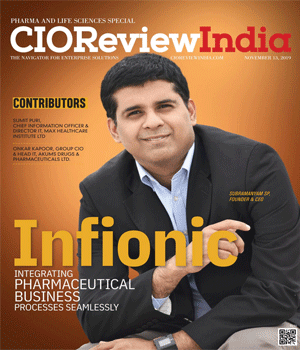
.jpg)
.jpg)
.jpg)
